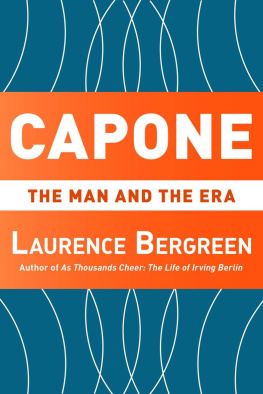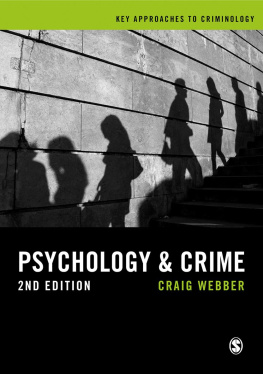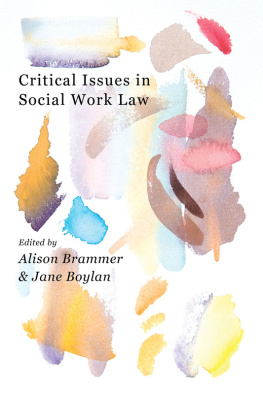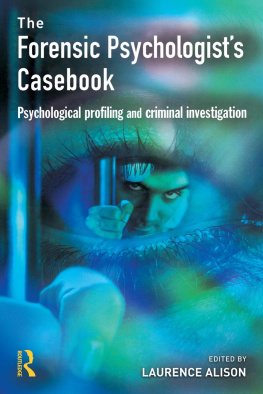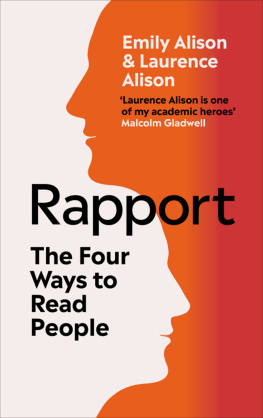OFFENDER PROFILING SERIES: Vol III
THE SOCIAL PSYCHOLOGY OF CRIME
Offender Profiling Series
Series Editor: David Canter
Titles in the Series
Interviewing and Deception
Edited by David Canter and Laurence Alison
Profiling in Policy and Practice
Edited by David Canter and Laurence Alison
The Social Psychology of Crime Groups, teams and networks
Edited by David Canter and Laurence Alison
Profiling Property Crimes
Edited by David Canter and Laurence Alison
Profiling Rape and Murder
Edited by David Canter and Laurence Alison
The Psychology of Rape Investigation
Margaret Wilson, David Canter and Karen Jack
OFFENDER PROFILING SERIES: Vol III
THE SOCIAL PSYCHOLOGY OF CRIME
Groups, teams and networks
Edited by
DAVID CANTER and LAURENCE ALISON
Centre for Investigative Psychology
University of Liverpool
David Canter, Laurence J. Alison 2000
All rights reserved. No part of this publication may be reproduced, stored in a retrieval system, or transmitted in any form or by any means, electronic, mechanical, photocopying, recording or otherwise without the prior permission of the publisher. Dartmouth Publishing Company Limited
First published 2000 by Ashgate Publishing
Published 2016 by Routledge
2 Park Square, Milton Park, Abingdon, Oxon OX14 4RN
711 Third Avenue, New York, NY 10017, USA
Routledge is an imprint of the Taylor & Francis Group, an informa business
Notice:
Product or corporate names may be trademarks or registered trademarks, and are used only for identification and explanation without intent to infringe.
British Library Cataloguing in Publication Data
The social psychology of crime : groups, teams and networks. - (Offender profiling series ; v. 3)
1.Crime - Social aspects 2.Criminal psychology 3.Social psychology
I.Canter, David, 1944- II.Alison, Laurence J.
364.3
Library of Congress Cataloging-in-Publication Data
Canter, David.
The social psychology of crime : groups, teams and networks / David Canter and Laurence Alison.
p. cm. - (Offender profiling series ; vol. III)
ISBN 1-84014-435-1 (hbk.)
1. Criminal behavior-Social aspects. 2. Criminals-Social networks. 3. Social groups. 4. Criminal psychology. 5. Social psychology. I. Alison, Laurence J. II. Title. III. Series.
HV6155.C36 1999 |
364.3-dc21 |
99-044828 |
ISBN 978 1 84014 435 2 (Hbk)
ISBN 978 1 84014 497 0(Pbk)
Contents
David Canter and Laurence Alison
Gerald Mars
Duncan McAndrew
Alan Doig
Margaret Wilson and Alaster Smith
Lynne Johnston
Ian Donald and Angela Wilson
Karyn McCluskey and Sarah Wardle
Shadd Maruna
David Canter
Offender Profiling has become part of public consciousness even though many people are not really sure what it is and the great majority of people have no idea at all of how it is done. This ignorance is just as prevalent in professional circles as amongst the lay public. Psychologists, psychiatrists, probation officers and social workers all have an interest in how their disciplines can contribute to police investigations, but few practitioners are aware of exactly what the possibilities for such contributions are. Others, such as police officers and lawyers, who seek advice from profilers often also have only the vaguest ideas as to what profiling consists of or what scientific principles it may be based on. The army of students who aspire to emulate the fictional activities of psychologists who solve crimes is yet another group who desperately need a systematic account of what offender profiling is and what the real prospects for its development are.
The public fascination with the little understood activity of profiling has meant that no fictional account of crime, whether it be heavy drama or black comedy, seems to be complete without at least one of the protagonists offering as a profile their opinion on the characteristics of the perpetrator of the crime(s) around which the narrative is built. This popular interest combined with widespread ignorance has generated its own corpus of urban myths: such mythical profilers produce uncannily accurate descriptions of unknown killers, solve cases that had baffled the police and seem to know before the criminal where he would strike next.
Sadly, like all myths not only do they only have a very loose connection with reality but they also distract attention away from a range of other significant and more intellectually challenging questions. These are the important questions that are inherent in the processes of criminal behaviour and its investigation. Such considerations include assessments of the quality and validity of the information on which police base their decisions and subsequent actions. This also involves assessing the possibilities for detecting deception. There also exist questions about the consistencies of a criminals behaviour and what the crucial differences are between one offender and another.
Group processes of criminals raise other questions, which surprisingly are seldom touched upon by profilers in fact or fiction. These ask about the form such groups take and the influence they have on the actions of the criminals, the role of leaders in crimes or the socio-cultural processes of which they are a part. There are also important issues about the implications and use of any answers that may emerge from scientific studies of crimes and their investigation
These and many other questions are raised by the mere possibility of psychology being of value to police investigations. To answer them it is essential to go beyond urban myth, fiction and the self-aggrandising autobiographies of self-professed experts. A truly scientific stance is necessary that draws on a wide range of social and psychological disciplines
Many of these questions relate to others that are central to any psychological considerations of human actions, such as the nature of human memory, the processes of personality construction, group dynamics and interpersonal transactions. Therefore the systematic, scientific study of the issues relevant to offender profiling are recognisably part of a burgeoning field of psychology and related disciplines. In an attempt to make this point and distinguish the steady accretion of knowledge in this area from the mythology, hyperbole and fiction of offender profiling I labelled this field Investigative Psychology. This term seems to have taken root and is now evolving rapidly throughout the world.
Yet in the way that labels and terminology have a life of their own offender profiling and its variants will just not lie down and die peacefully from a robust youth and dissolute old age. So we are stuck with it as a somewhat unhelpful shorthand and therefore the term has been kept for the title of this series in the hope that we may gradually re-define profiling as a systematic and scientific endeavour.





